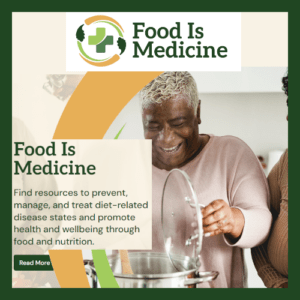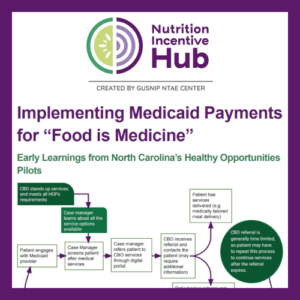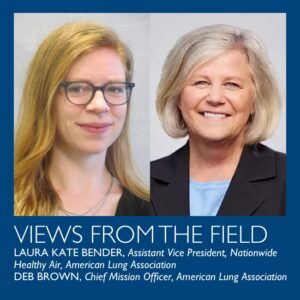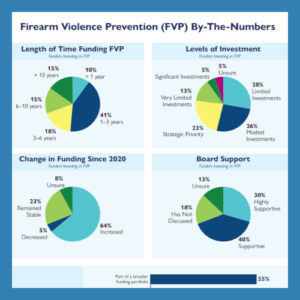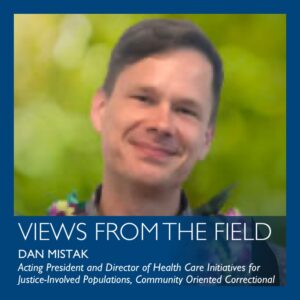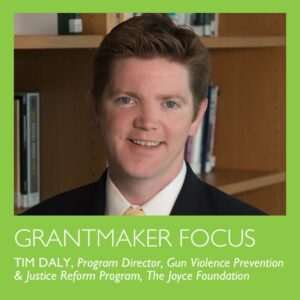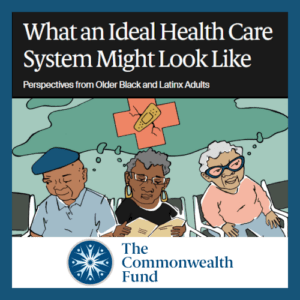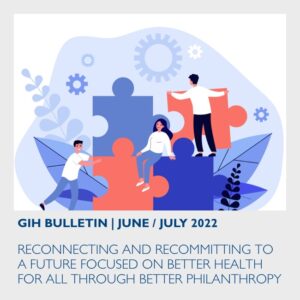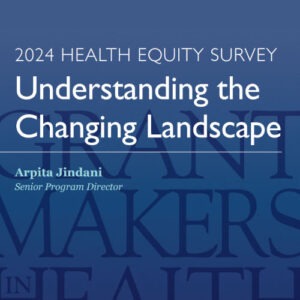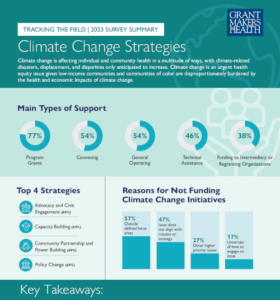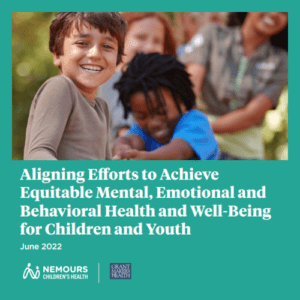Upcoming Events
Past Events
Featured Resources
New America Report Examines Subminimum Wage for Disabled Workers
Under the Fair Labor Standards Act, employers are allowed to pay disabled workers less than the federal minimum wage, which has significant impacts on these workers’ health and well-being. A report from New America examines, state by state, the policies that drive the use or elimination of the subminimum wage, as well as the programs each state provides to more comprehensively support individuals with disabilities as they seek meaningful employment and fair wages.
HHS Launches New Food is Medicine Virtual Toolkit
The Toolkit was developed in response to the National Strategy on Hunger, Nutrition, and Health and to support communities design and implement effective Food is Medicine interventions.
Case Study Examines Early Learnings in Using Medicaid Payments for Food is Medicine
A new resource commissioned by the Fair Food Network examines the early learnings from the Healthy Opportunities Pilots effort in North Carolina to use federal 1115 Medicaid Demonstration Waiver funding to scale and sustain community-based implementation of a combination of produce prescription programs, medically tailored meal programs, and nutrition education.
Explore Health Equity and Social Justice Topics
Recent Items - Climate and Environmental Health
The Health Sector is a Critical Voice in Climate Advocacy
Recent Items - Health Equity
Let’s Take Courageous Steps Together in 2025
Recent Items - Healthy Eating/Active Living
The National Peanut Board: April 2025
Recent Items - Housing
Marin Community Foundation: October 2024
Horizon Foundation: September 2024
Recent Items - Justice Reform
Recent Items - Social Determinants of Health
Marin Community Foundation: October 2024
Recent Items - Violence Prevention
The Joyce Foundation
Latest Resources
New York Health Foundation: August 2022
Funding is available through a New York Health Foundation (NYHealth) Request for Proposals (RFP): Sponsoring Conference Participation in Support of Healthy Food, Healthy Lives; Consumer Empowerment; and Veterans’ Health.
What an Ideal Health Care System Might Look Like: Perspectives from Older Black and Latinx Adults
A new research publication from The Commonwealth Fund, “What an Ideal Health Care System Might Look Like: Perspectives from Older Black and Latinx Adults,” examines what health care should do to better respect people’s identities, health needs, and preferences.
Reconnecting and Recommitting to a Future Focused on Better Health for All through Better Philanthropy
Much has changed since Grantmakers In Health (GIH) last convened in 2019. Over the past three years, more than 1 million Americans have lost their lives due to COVID-19. Large cracks are apparent in our public health infrastructure, health care systems, and safety net programs. In addition, pervasive inequities across all facets of society have increased. The country is divided, and this division continues to hamper our ability to address one of the greatest health challenges our modern world has ever faced.
Reflecting on the Intersections Initiative
For organizations like the St. Joseph Community Partnership Fund (the Fund) and Prevention Institute (PI), GIH conferences have served as a critical space to bring together advocates across sectors and spark new ideas to address complex health issues. Inspired by a PI-led session on upstream prevention and health equity at GIH’s March 2016 annual conference, the Fund noted the promising landscape for a grantmaking initiative that could focus on root causes of poor health and dismantling systems of inequity, and a partnership was born.
Will We Hear the Voices of the LGBTQ Community?
Across the United States we are seeing a coordinated campaign to restrict lesbian, gay, bisexual, transgender, and queer (LGBTQ) rights and limit access to affirming, lifesaving health care. According to the Equality Federation, nearly 400 anti-LGBTQ bills were introduced across the country in 2021, and over 240 bills have already been filed in 2022. These policies directly impact the health and safety of members of the LGBTQ community. Recent data from The Trevor Project show that 66 percent of LGBTQ youth, including 85 percent of transgender and/or nonbinary youth, report that recent debates around state laws to restrict the rights of transgender people have negatively affected their mental health.
It’s Time to Converge on Narrative Change for Racial Justice and Health Equity
Philanthropy is increasingly embracing narrative change as a tool for building public and political will to advance equitable policies and structural change. Yet philanthropic narrative investments to advance racial justice and health equity are still relatively new and disparate. The work is often siloed, lessons and insights are not often shared across efforts, and there is also a wide range of definitions of narratives, perspectives, and approaches on how to shift them.
Reports and Publications
2024 Health Equity Survey: Understanding the Changing Landscape
In 2024, Grantmakers In Health (GIH) surveyed its Funding Partners to understand how their health equity work has evolved. The survey consisted of 40 questions including demographic information, program focus areas, partner engagement, organizational strategy, priority population, successes, and challenges. This report summarizes findings from the Health Equity Survey titled, “Understanding the Changing Landscape.”
2023 Survey Summary: Climate Change Strategies
This infographic summarizes the responses to a Grantmakers In Health funder survey, conducted in May and June 2023, on how philanthropy is addressing climate change, and the barriers and opportunities that exist to support climate-related efforts.
Aligning Efforts to Achieve Equitable Mental, Emotional, and Behavioral Health and Well-Being for Children and Youth
This report issues a call to action for philanthropic organizations and public-sector partners that are ready to move forward in improving mental, emotional, and behavioral health. It describes existing philanthropic and federal initiatives and offers a potential portfolio of aligned strategies for private- and public-sector partners to consider.
Strengthen your knowledge, skills, and capacity.
GIH focuses our programming around five areas that are critical to achieving better health for all.
We invite you to explore the resources available on our focus areas pages, browse content in more specific issue areas, and to connect with GIH staff to discuss how we can partner and support your work.


